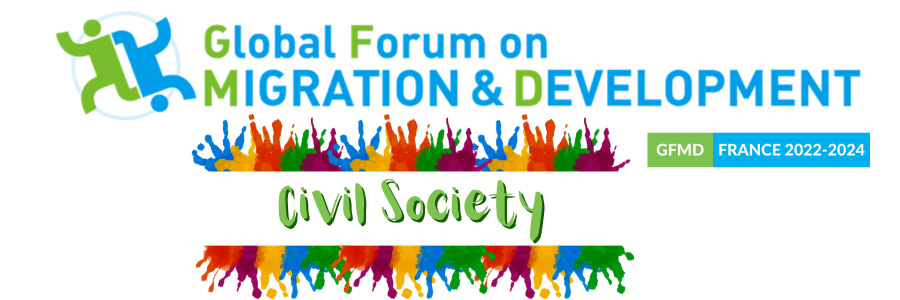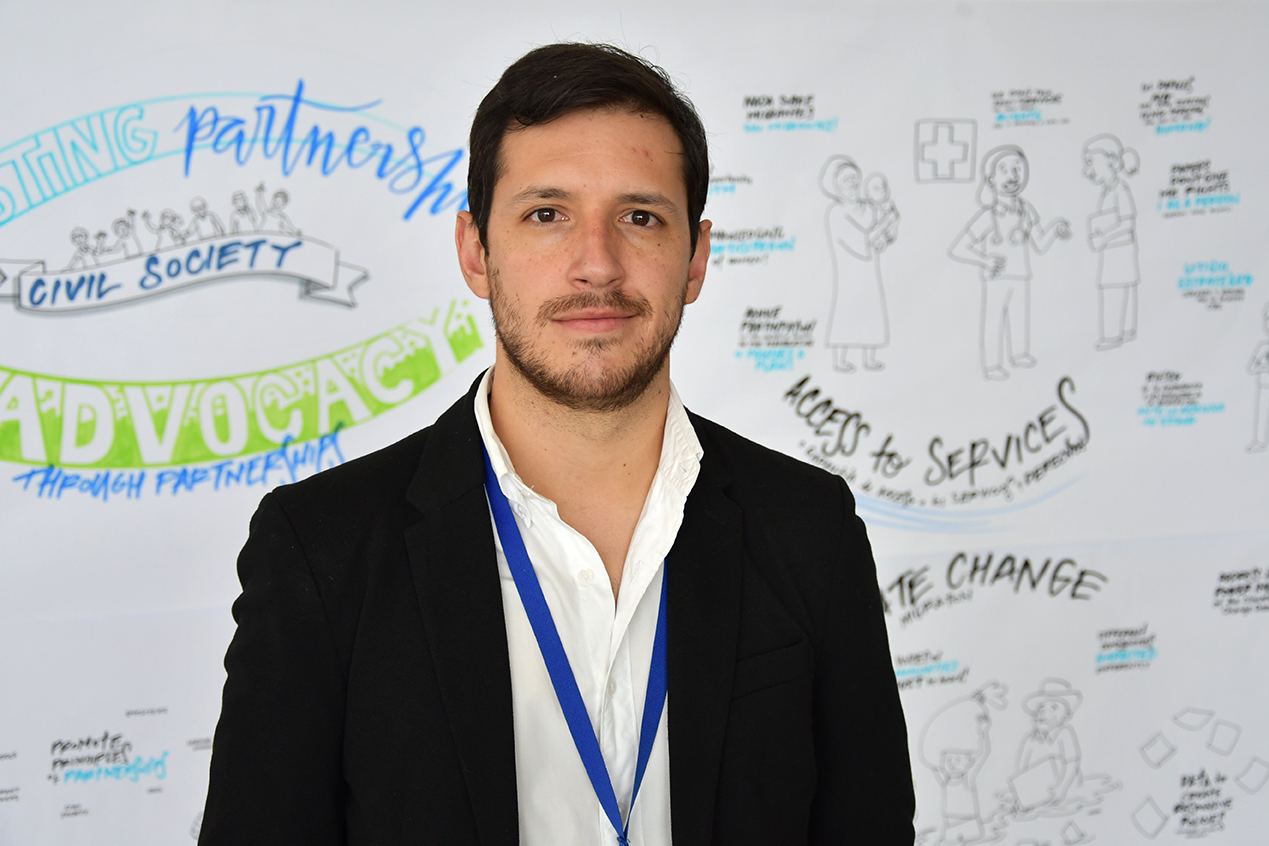Daniel Almeida is the Latin America Regional Advocacy Advisor for Care International, a global confederation working to end poverty. Based in Quito, Ecuador, Mr. Almeida attended the Summit of the 12th Global Forum for Migration and Development – (GFMD). In this interview, he discusses the challenges and opportunities faced by civil society organizations in Ecuador in the framework of the GFMD.
Can you paint us a picture of Ecuadorian civil society?
[Daniel Almeida] Ecuador is a relatively small country, but we do have a very active civil society sector working on human mobility issues. Organizations are very active and varied as well. In terms of migration, Ecuador is a country of destination, transit and also of origin.
There is a vast Ecuadorian diaspora which, decades ago, left the country for Spain and started coming back in the first decade of the 2000s. Since then, the returnees have created their own organizations working on migration. These are people who can speak first-hand of their experience as migrants abroad or as returnees.
Then of course, we are currently welcoming many Venezuelans and historically, Ecuador has been and still is a destination country for Colombian refugees.
So there are two aspects: first, the question of international protection and of the rights refugees have access to; second, the newly arrived migrants, the informality, the uncertainty, the xenophobia. Civil society organizations work across all these different aspects and are very active.
What is the importance of the GFMD Summit for Ecuadorian civil society?
This Summit has been an important learning space and a place to create connections among Latin American organizations. South America is always left a bit aside in the global sphere, so I believe this has been an important opportunity to connect and create a network among us. This is a relatively new phenomenon.
One of the aspects that we need to improve — and not just within or among civil society organizations but on a much broader scale — is effective communication. You need good communication to coordinate efforts and even if we have strong structures in place, we have seen, for example with the Venezuelan situation, that it is still difficult to ensure that the response works well. So, communication is the key to successful coordination and I hope that a space like the GFMD can be helpful in this regard.
There was a lot of scepticism among civil society organizations in Ecuador regarding the GFMD. Both the GFMD and the Global Compact for Migration (GCM) are non-binding, so people were skeptical about what they can actually achieve. However, though I have to say it did take us a while, there was a sense that the GFMD creates an opportunity for dialogue, for connection with other spaces and mechanisms and within global civil society, which is something positive.
What is the importance of Ecuador being the host of the GFMD Summit?
This is the first time that a South American country hosts the Summit. This means that for us, and especially for the local civil society, it is an opportunity to come together with global actors to learn from each other and raise the voices, challenges and the experiences of a country of the so-called “global South”.
And for Ecuador in general, for the whole country, it is very interesting to be able to see how migration-related challenges – which are always specific to each context but also show some similarities – have been dealt with and what type of public policies have been implemented in other parts of the world so that we don’t need to reinvent the wheel.
It is also important for our own government to see that there are other ways to tackle challenges, better ways to do things. If we talk about the Venezuelan situation, we went from thousands of people crossing the border every day to about a dozen per day. Is that because there are less people? No, absolutely not! It’s because people are opting to come through irregular crossing points. So there is no control and more irregularity. There are better ways to handle situations like this and I believe these discussions should include the role of technology and of effective communication.
Talking with people with experiences from other parts of the world can help us understand that if we do not give visibility to a situation, it will get worse for everybody involved. For the Venezuelan children who are not going to school, for the Colombian refugees who feel invisible. And for the local communities as well, since Ecuador is a poor country. We have many challenges and I hope that the discussions and exchanges at this Summit will help us understand how better to tackle them.
What kind of impact has the Global Compact for Migration had on Ecuador?
I remember when the GCM was adopted, it felt like such an extraordinary moment. Here we had in front of us a document telling us everything we wanted to hear, with some very powerful objectives. For advocacy purposes, even for the coordination of the response to the Venezuelan situation – through the regional Quito process, for example — it has been a very powerful instrument.
Before we had this understanding that, as a region, we have shown much solidarity and been very good in welcoming refugees – thanks to the Cartagena Declaration [which offers support not only for refugees as defined in the 1951 Convention, but also for a wider category of people fleeing from a situation of generalized violence or massive violations of human rights — editor’s note]. But now, we have this additional document, which includes a set of possible public policies and which can be used for people who are not necessarily refugees, nor necessarily forced migrants.
The GCM offers this breadth, but at the same time it can be a little unclear, not very precise. It has these two elements and still many challenges and complexities. I believe that mechanisms such as the GFMD can help us strengthen our actions in conformity with the GCM. However, as civil society, we need to keep a critical eye out all the time.
What is your take-away from the GFMD summit?
First, the connections I made during this Summit. It has been a great space for dialogue and discussions and there were many interesting conversations and good ideas shared. The sharing of different realities, the creation of a network, this is truly invaluable.
It has also been an excellent opportunity to understand, from a more practical perspective, what some of these discussions mean on the ground, with examples from many parts of the world.
Another important point is the need to remove stereotypes. And here, I refer especially to the business sector. Of course, just as much as it is impossible to say that the civil society organizations present here represent the whole of civil society around the world, it is impossible to say that the business leaders present here these days represent the business sector as a whole. Because it is even much wider, much more complex. However, it is great to have the sector represented and to understand that working together is not only possible, but absolutely necessary.
This meeting is the start of a lot of work. What we need to do now is to work more in coordination with each other. The situation we are facing in Ecuador and in the whole world really, is not ‘business as usual’, so we cannot keep working as we have done so far. We are facing a global crisis and we need to adjust our thinking to a ‘crisis’ mode. We cannot do ‘business as usual’ anymore.

